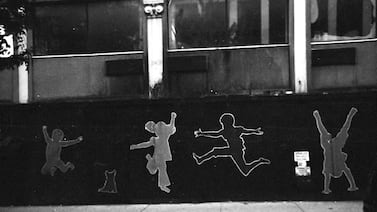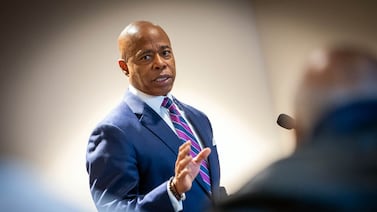Indiana’s 2023 legislative session is under way, and state legislators have introduced more than 100 new education bills and bills impacting schools and students. For the latest Indiana education news, sign up for Chalkbeat Indiana’s free newsletter here.
This article originally published in the Indiana Capital Chronicle.
Indiana lawmakers are largely mum about the revival of a much-debated ban on materials deemed “harmful to minors” in school and public libraries.
A bill with such language advanced from the Senate but died in the House earlier this session without a hearing. The House Education Committee instead seemed intent on reinserting similar language from that measure — Senate Bill 12 — into another bill.
Although House legislators heard more than four hours of mostly-oppositional testimony on the amendment, a vote was never held. That has left the library provision abandoned from any moving legislation — so far.
But Republican House Speaker Todd Huston said Thursday his caucus is still considering a last-minute addition in conference committee.
“I think we’ll talk about that early next week,” he said of the harmful material language. “But I think … if you want to do it, you’ve got to find the right bill, where it’s appropriate.”
The stage is already set for that to happen in House Bill 1447, which addresses third-party surveys and evaluations given to K-12 students.
Rep. Donna Schaibley, R-Carmel, was removed last week as the conferee on the bill and replaced with Rep. Martin Carbaugh, R-Fort Wayne. He sits on the House Education Committee and has supported similar legislation in the past.
Sen. Jim Tomes, R-Wadesville, who authored Senate Bill 12, along with Sen. Jeff Raatz, R-Richmond — chair of the Senate Education Committee — were added as bill advisors.
The switches are part of end-of-session politics that play out during conference committee negotiations. Those temporary committees are formed in relation to a specific bill and tasked with negotiating a proposal that can be agreed to by both chambers.
GOP Senate President Pro Tem Rodric Bray said lawmakers aren’t intending to be secretive about their plans, noting that — should they decide to revive the library language — “it’s going to be like everything else.”
“It’ll come out, and there will be a conference committee report, if that happens. It certainly is a conversation to try and bring that forward. And then the House and the Senate will both debate it and vote on it publicly,” Bray said.
Still, Tomes did not respond to a request for comment.
House Education Committee chairman Rep. Bob Behning, R-Indianapolis, also did not comment about the library language when asked Thursday by the Indiana Capital Chronicle. He said last week that the issue “is not done yet.”
Hours of testimony — but no House committee vote
The proposed amendment that stalled earlier this month in the House Education Committee intended to create a new process for parents to request the removal of books alleged to be obscene or harmful to minors from school and public libraries.
Language in the amendment would have additionally removed “educational purposes” as a reason that public schools and libraries could claim legal protection for sharing “harmful material” with underage students.
School officials and librarians pushed back against the proposal, arguing that such a policy would open them up to criminal charges and create a “chilling effect” on book selections.
Democrats echoed those concerns, saying the amendment could lead to the removal of anything one parent deems to be unsuitable over the objection of other parents.
Proponents of such language pointed to Hoosier parents who say their local school boards have rejected their challenges of certain materials — leaving books some deem to be “obscene” and “objectionable” accessible to kids in school libraries.
Republican lawmakers agreed, saying the book removal process “isn’t working” at the local level and now warrants statewide legislative action to require “transparency between schools, libraries and communities.”
A years-long debate on ‘harmful materials’
But there was no GOP push on the House floor to bring any part of the amendment back after the underlying bill advanced from the education committee without any library provisions.
Bray said last week that lawmakers have tried “several iterations” to “find a space” for the language.
“Right now, it’s probably palatable for our caucus. So there’s a good possibility to see that find a home somewhere,” he said. “This issue has come up for a few years now, and there is some will to try and find a way to resolve it.”
Tomes has filed similar bills in years past to take away schools’ defense to the state’s “harmful materials” law. A similar proposal failed in the 2022 session after K-12 librarians and educators argued they would be unfairly criminalized.
The senator said his bills are about “parents, their children, and books — really, really, really bad books.” He maintained he wants to eradicate “raw pornography” from school libraries.








